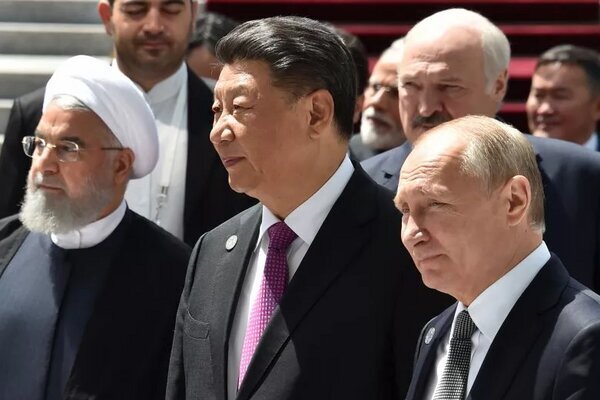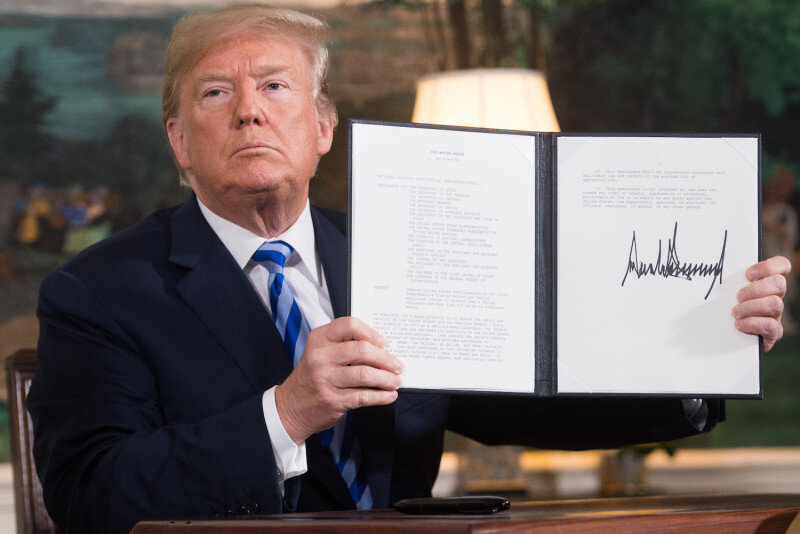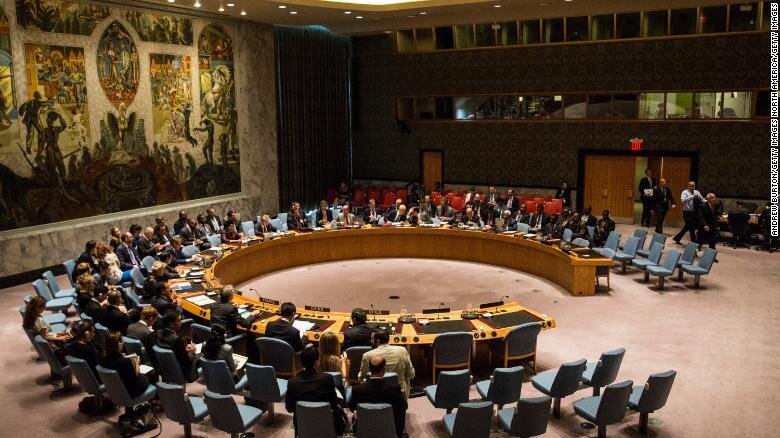China, Russia next targets if U.S. wins in undermining Iran

TEHRAN – Pointing to U.S. unlawful move to reimpose sanctions against Iran and importance of confronting its unilateralism, Cartalucci said China and Russia are next targets of the U.S. if it will be successful in undermining of Iran.
Under the 2015 nuclear deal that Iran struck with six major powers; the UK, China, France, Germany, Russia, and the U.S., the UN conventional arms embargo is set to expire on October 18.
On August 14, the 15-member UNSC unanimously rejected a U.S. resolution to extend an arms embargo on Iran, which is due to expire in October in line with a landmark nuclear deal, officially known as the Joint Comprehensive Plan of Action (JCPOA).
U.S. is also claiming to still be a JCPOA participant as it has sent a letter to the UN Security Council on activation of a mechanism of the nuclear deal. U.S. Secretary of State Mike Pompeo claimed that all sanctions will return as of September 20.
This is while the U.S. has officially ended its participation in the JCPOA in May 2018, and has spared no effort to destroy the agreement.
All other JCPOA participants and most of the UNSC members argue that U.S. is no longer a JCPOA participant and hence cannot use its provisions.
The majority of the UN Security Council members said they would not support the United States’ move to snapback sanctions since the United States unilaterally withdrew from the nuclear agreement in 2018.
To know more about the issue, we reached out to Bangkok- based geopolitical researcher Anthony Cartalucci.

Trump signs a document reinstating sanctions against Iran after announcing the U.S. withdrawal from Iran nuclear deal on May 8, 2018
Following is the text of our interview with him:
Is Trump's move legal to activate 'snapback mechanism'?
The "legality" of U.S. President Donald Trump's move within the U.S. is relative. In international terms, it is completely illegal, as is virtually every aspect of U.S. foreign policy especially in regards to Iran. The imposition of sanctions and the defacto blockade the U.S. is attempting to impose on Iran is a long-standing act of war with regime change similar to what it has carried out in Iraq, Afghanistan, and Libya the ultimate goal. These previous U.S. interventions were also absolutely illegal beforehand and much more clearly in hindsight.
Will other members of the UNSC back the U.S. decision or will the U.S. lose once again in the UNSC as it failed last month?
It is doubtful that Russia or China would back anything the U.S. does in regards to Iran. Its repeated failure within the United Nations Security Council is precisely why it has pursued unilateral options to advance its foreign policy versus Iran. This should probably also help further illustrate just how outside international law and norms Washington's actions regarding Iran really are.

UN Security Council rejected U.S. proposal to extend the conventional weapons embargo on Iran
How can the U.S. force them to back Washington's illegal demand?
The U.S. uses a variety of tools to threaten and coerce nations around the globe to capitulate to its illegal demands. Its current trade war with China which is increasingly looking like the lead up to a real war - is in many ways designed to pressure Beijing into making concessions - including in regards to Iran - in order to get temporary relief from economic pressure the U.S. places on China as well as a temporary reprieve from the many ongoing campaigns of political subversion the U.S. sponsors within and along China's borders. The same could be said regarding Russia.
I think in the long run both China and Russia know that if the U.S. is successful in its undermining of Iran, it will only make it easier in the future for the U.S. to turn toward China and Russia next.
Why has Trump focused on the Iran issue months before the 2020 presidential election?
Trump ran on a platform of "ending the Iran deal" before even becoming president. But when we look at U.S. foreign policy circles actually creating the policies all U.S. presidents eventually end up adopting, as early as 2009 there were U.S. policy papers like the Brookings Institution's "Which Path to Persia?" declaring a desire to first create, then withdraw from a deal with Iran in order to make the U.S. look like it tried to be reasonable before moving on to more extreme tactics.
U.S. President Barack Obama and President Donald Trump merely played their role in this game - with Obama "creating" the deal, and Trump "withdrawing" from it. The U.S. had no intention of ever honoring it even before U.S. representatives sat down with their Iranian counterparts to sign it. Whether Trump wins or loses this upcoming election, maximum pressure on Iran will continue and Iran along with its allies will have to deal with U.S. aggression pragmatically rather than purely politically, and certainly without hope of America ever acting in good faith.
Comments